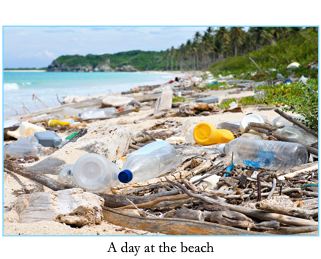
I was modestly surprised last week when my groceries were packed not in the usual plastic but in brown paper bags. The idea, of course, is to get away from single-use plastics.
Not that my grocery bags were ever single-use. I took my bags back the next time I shopped until they disintegrated. So my bags were good for dozens of uses. Except for the ones I used for garbage—those were double-use bags. Now I’ll have to buy garbage bags, so I will be using single-use bags after all.
Not that the replacements for plastic grocery bags will be any better. Paper bags result in more greenhouse gasses, and a study by the Danish government that took into account greenhouse gas emissions, water use, damage to ecosystems and air pollution estimated you would have to use an organic cotton bag 20,000 times more than a plastic grocery bag to make it better for the environment.
So banning plastic grocery bags may not be particularly helpful; nonetheless I wholeheartedly support the overall program of dramatically reducing plastic.
The fact is we’re drowning in it. The world produces about 400 million tons of plastic waste a year, very little of which is recycled. Much of that littered and landfilled plastic ultimately breaks down into microplastics which contaminate our food, air, and water. They also accumulate in our bodies, increasing our risk of a variety of ills. And then there’s the fact that plastics are mostly made from fossil fuels using processes that emit greenhouse gases and hazardous chemicals.
Unfortunately, because they are made from a variety of mixtures with many chemicals, plastics are hard to recycle. It is far cheaper to manufacture most types of plastic from scratch than from recycled material.
Dealing with the growing problem requires a number of solutions. Far more recycling with improved methods, eliminating single-use plastics, and making manufacturers and sellers responsible for the life cycle of their products would all help. But the ultimate solution is consuming less—less plastic and less of what is packaged in it.
The good news is that the effort is underway at all levels. Last year, the first session of UN negotiations for a Global Plastics Treaty was concluded in Uruguay. According to Inger Andersen, Executive Director of the UN Environment Programme, the agreement is the most important international multilateral environmental deal since the Paris climate accord—a small but significant start.
Federally, Ottawa has legislated a ban on the manufacture and import of six types of single-use plastics including grocery bags, cutlery, straws, stir sticks, styrofoam containers and ring carriers. Again, a small but important step.
Locally, The City of Calgary has complemented the federal action by passing a bylaw aimed at limiting some single-use items that often end up in landfills. This shows no little courage considering that Alberta’s pet industry, oil and gas, is the major producer of plastic, and production of plastics was looking like a “soft landing” for an industry under the climate change gun.
So progress internationally, nationally and locally—authorities at all levels joining the program.
Plastic may be the most useful material ever invented. One wonders, for example, how the medical profession ever functioned without it. Or how you and I could function without our digital devices. But enough is enough and we are producing and wasting more than enough. It’s long past time to exercise some environmental restraint.